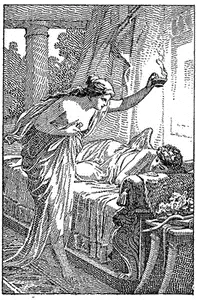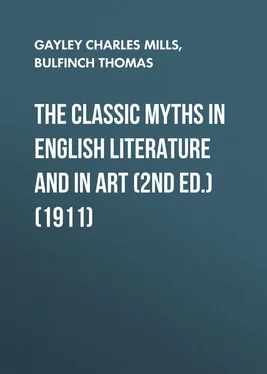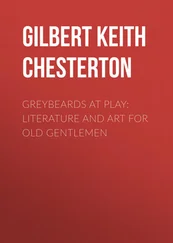Thomas Bulfinch - The Classic Myths in English Literature and in Art (2nd ed.) (1911)
Здесь есть возможность читать онлайн «Thomas Bulfinch - The Classic Myths in English Literature and in Art (2nd ed.) (1911)» — ознакомительный отрывок электронной книги совершенно бесплатно, а после прочтения отрывка купить полную версию. В некоторых случаях можно слушать аудио, скачать через торрент в формате fb2 и присутствует краткое содержание. Жанр: foreign_antique, foreign_prose, на английском языке. Описание произведения, (предисловие) а так же отзывы посетителей доступны на портале библиотеки ЛибКат.
- Название:The Classic Myths in English Literature and in Art (2nd ed.) (1911)
- Автор:
- Жанр:
- Год:неизвестен
- ISBN:нет данных
- Рейтинг книги:4 / 5. Голосов: 1
-
Избранное:Добавить в избранное
- Отзывы:
-
Ваша оценка:
- 80
- 1
- 2
- 3
- 4
- 5
The Classic Myths in English Literature and in Art (2nd ed.) (1911): краткое содержание, описание и аннотация
Предлагаем к чтению аннотацию, описание, краткое содержание или предисловие (зависит от того, что написал сам автор книги «The Classic Myths in English Literature and in Art (2nd ed.) (1911)»). Если вы не нашли необходимую информацию о книге — напишите в комментариях, мы постараемся отыскать её.
The Classic Myths in English Literature and in Art (2nd ed.) (1911) — читать онлайн ознакомительный отрывок
Ниже представлен текст книги, разбитый по страницам. Система сохранения места последней прочитанной страницы, позволяет с удобством читать онлайн бесплатно книгу «The Classic Myths in English Literature and in Art (2nd ed.) (1911)», без необходимости каждый раз заново искать на чём Вы остановились. Поставьте закладку, и сможете в любой момент перейти на страницу, на которой закончили чтение.
Интервал:
Закладка:
Woe, woe for Adonis, he hath perished, the lovely Adonis!
… Cease, Cytherea, from thy lamentations, to-day refrain from thy dirges. Thou must again bewail him, again must weep for him another year.
101. Cupid and Psyche. 126 126 Apuleius, Metam. Golden Ass, 4, 28, etc.
A certain king and queen had three daughters. The charms of the two elder were more than common, but the beauty of the youngest was such that the poverty of language is unable to express its praise. In fact, Venus found her altars deserted, while men paid their vows to this virgin. When Psyche passed, the people sang her praises and strewed her way with chaplets and flowers.
This perversion of homage gave great offense to Venus, who complained that Paris might just as well not have yielded her the palm of beauty over Pallas and Juno, if a mortal were thus to usurp her honors. Wherefore she called Cupid and, pointing out Psyche to him, bade him infuse into the bosom of that haughty girl a passion for some low, unworthy being.
There were in Venus's garden two fountains, – one of sweet waters, the other of bitter. Cupid filled two amber vases, one from each fountain, and suspending them from the top of his quiver, hastened to the chamber of Psyche, whom he found asleep. He shed a few drops from the bitter fountain over her lips, though the sight of her almost moved him to pity; and then he touched her side with the point of his arrow. She awoke, and opening her eyes upon Cupid (himself invisible), so startled him that in his confusion he wounded himself with his arrow. Heedless of his wound, his thought now was to repair the mischief he had done. He poured, at once, the waters of joy over her silken ringlets.
But Psyche, henceforth frowned upon by Venus, derived no benefit from her charms. Her two elder sisters had long been married to princes; but Psyche's beauty failed to awaken love. Consequently her parents, afraid that they had unwittingly incurred the anger of the gods, consulted the oracle of Apollo.
They received answer, "The virgin is destined for the bride of no mortal lover. Her husband awaits her on the top of the mountain. He is a monster whom neither gods nor men can resist."
This dreadful decree of the oracle filled the people with dismay; but, at Psyche's request, preparations for her fate were made. The royal maid took her place in a procession, which more resembled a funeral than a nuptial pomp, and with her parents, amid the lamentations of their subjects, ascended the mountain, where she was left alone.
While Psyche stood there, panting with fear and with eyes full of tears, the gentle Zephyr lifted her and, with an easy motion, bore her to a flowery dale. By degrees her mind became composed, and she laid herself down on the grassy bank to sleep. When she awoke refreshed with sleep, she beheld near by a pleasant grove of tall and stately trees. Entering, she discovered in the midst a fountain, and fast by a palace whose august front showed that it was not the work of mortal hands, but the happy retreat of some god. She approached the building and entered. Every object she met filled her with pleasure and amazement. Golden pillars supported the vaulted roof, and the walls were enriched with carvings and paintings that represented beasts of the chase and rural scenes. Other apartments were filled with still other beautiful and precious productions of nature and art.
While her eyes were thus occupied, the voice of an invisible being addressed her: "Sovereign lady, all that thou beholdest is thine. We whose voices thou dost hear are thy servants. Retire, we pray thee, to thy chamber, repose on thy bed of down, and when it may please thee repair to the bath. Food awaits in the adjoining alcove."
After repose and the refreshment of the bath, Psyche seated herself in the alcove, where, without any visible aid, a table immediately presented itself, covered with delicacies and nectareous wines. Her ears, too, were delighted with music from invisible performers.
For a long time she did not see her husband. He came in the hours of darkness and fled before the dawn of morning; but his accents were full of love and inspired a like passion in her. Often she begged him to stay and let her behold him, but he would not consent. "Having looked upon me," he said, "mayhap thou wouldst fear, mayhap adore, me; but all I ask of thee is love. I would rather thou shouldst love me as an equal than adore me as a god." This reasoning somewhat quieted Psyche for a time. But the thought of her parents and of her sisters, left in ignorance of her fate, preyed on her mind to such a degree that at last, telling her distress to her lord, she drew from him an unwilling consent that her sisters should be brought to see her.

Fig. 75. Psyche at the Couch of Cupid
From the painting by Thumann
Zephyr, promptly obedient, soon brought them across the mountain down to their sister's valley. They embraced her. She returned their caresses, and then committed them to the care of her attendant voices, who should refresh them in her bath and at her table, and show them her treasures. The view of these delights caused envy to enter their bosoms. They plied their fortunate sister with questions about her husband. Psyche replied that he was a beautiful youth, who generally spent the daytime in hunting upon the mountains. The sisters, not satisfied with this reply, soon made her confess that she had never seen him. Then they proceeded to fill her bosom with dark suspicions. Probably her husband was a dreadful monster, such as the Pythian oracle had prophesied. Probably he was a direful serpent, who nourished her now to devour her by and by. They advised her to provide herself against the night with a lamp and a sharp knife, told her what to do if her husband turned out the monster that they surmised, and, so saying, departed.
These persuasions Psyche resisted as well as she could, but they did not fail to have their effect on her mind. She prepared a lamp and a sharp knife, and hid them out of sight of her husband. That night, when he had fallen into his first sleep, she silently rose and uncovering her lamp —
Scarce kept back a cry
At what she saw; for there before her lay
The very Love brighter than dawn of day;
And as he lay there smiling, her own name
His gentle lips in sleep began to frame,
And, as to touch her face, his hand did move;
O then, indeed, her faint heart swelled for love,
And she began to sob, and tears fell fast
Upon the bed. – But as she turned at last
To quench the lamp, there happed a little thing
That quenched her new delight, for flickering
The treacherous flame cast on his shoulder fair
A burning drop; he woke, and seeing her there
The meaning of that sad sight knew full well,
Nor was there need the piteous tale to tell. 127 127 William Morris, The Story of Cupid and Psyche, in The Earthly Paradise.
Without a word, Cupid spread his white wings, and flew out of window. Psyche, in vain endeavoring to follow, fell to the earth. For but an instant Cupid, staying, reproached her with distrust of him. "No other punishment inflict I than to leave thee forever. Love cannot dwell with suspicion." And so he flew away.
When Psyche had recovered some degree of composure, she looked around her. The palace and gardens had vanished. She found herself not far from the city where her sisters dwelt. Thither she repaired, and told them the story of her misfortunes, whereat they inwardly rejoiced. "For now," thought they, "he will perhaps choose one of us." With this idea, they rose early the next morning and, ascending the mountain, each called upon Zephyr to receive her and bear her to his lord; then, leaping up, failed of the support of Zephyr, fell down the precipice, and was dashed to pieces.
Читать дальшеИнтервал:
Закладка:
Похожие книги на «The Classic Myths in English Literature and in Art (2nd ed.) (1911)»
Представляем Вашему вниманию похожие книги на «The Classic Myths in English Literature and in Art (2nd ed.) (1911)» списком для выбора. Мы отобрали схожую по названию и смыслу литературу в надежде предоставить читателям больше вариантов отыскать новые, интересные, ещё непрочитанные произведения.
Обсуждение, отзывы о книге «The Classic Myths in English Literature and in Art (2nd ed.) (1911)» и просто собственные мнения читателей. Оставьте ваши комментарии, напишите, что Вы думаете о произведении, его смысле или главных героях. Укажите что конкретно понравилось, а что нет, и почему Вы так считаете.












